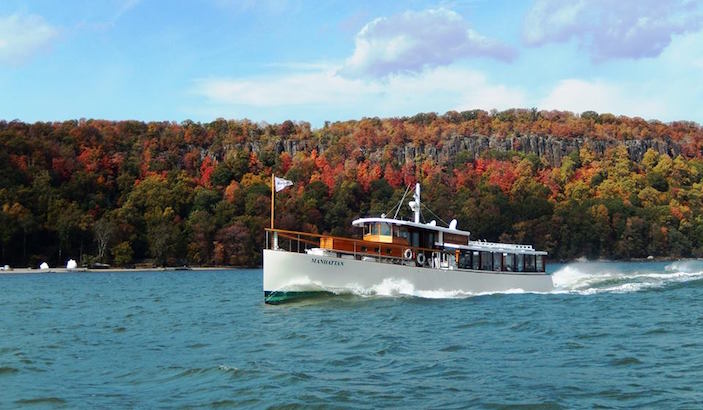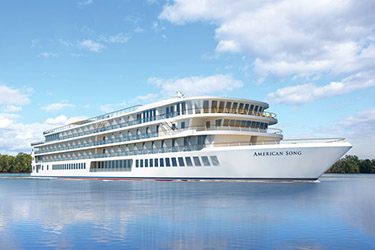
Recent articles have focused on environmental issues surrounding cruise ships. These concerns include pollution of Venice's waters, norovirus outbreaks, and air pollution by cruise ships. This article will address some of these issues and offer solutions to reduce environmental damage. It also discusses the impacts of cruise tourists on Venice.
Norovirus outbreaks on cruise ships
The CDC monitors recent Norovirus outbreaks aboard cruise ships. The disease can be spread by contaminated water, food and surfaces. It is hard to treat with antibiotics and is highly resistant to chlorine and temperature extremes. In addition, many people blame the infected crew member, who is not always the cause of the illness.
The number of outbreaks per ship varies depending on the type of cruise ship. There is a greater chance of infection during peak seasons (April and May) than in the off-season. Between April and July, there have been 43 cases of norovirus. Crew members and passengers were the most affected.

Cruise ships cause pollution
It is a major problem for coastal communities as well as the environment. Even though cruise ships are relatively small, they can cause large quantities of pollution. One estimate states that large cruise ships can produce as much as 210,000 gallons sewage and 1 million gallons graywater per week. They also produce around eight tons solid waste and 25,000 gallon of oily bilgewater. Environmental groups worry, however, that the laws controlling pollution from cruise vessels are not enough.
Cruise ships are actually contributing to Europe's pollution problem. The air pollution from cruise ships can be nearly as harmful as that caused by the national car fleet in certain countries. In fact, in Denmark, cruise ships emit as much NOX as half of the passenger cars there.
Pollution of Venice's Water
It is now taking steps to reduce the pollution caused by cruise ships in Venice's waters. These ships are responsible for between 14 and 15 percent of local air pollution. Engineers are still working on a plan for plugging the cruise ships into an electrical grid to turn off their engines in ports. However, this plan could take years. Activists have called for a meeting with Italy's Government to address this issue.
The pollution of the waters around Venice comes from industrial activity and shipping waste. The water from the canals contains heavy metals, and the city's canals are also filled with chemicals. It is not a good idea to dive into the water. High levels of contaminants in the city's water could cause you to get sick.

Cruise tourism has an environmental impact
Local communities can experience both positive and negative impacts from the cruise industry. This increases the number of people who travel by road, and also increases the use and cost of buildings and power plants. It also affects local ecosystems. For instance, a cruise ship can produce the equivalent of 50 swimming pools of highly polluted waste. It supports regional economies and creates jobs.
Not only does cruise tourism have positive economic impacts, but it also creates jobs and purchases goods and services that contribute to local economies. Cruise tourism increased 14% in 2008 compared to 2008. In 2008, the growth in cruise tourism was even greater than 2008. For many years, the trend has been upward.
FAQ
Where do cruises begin?
Miami is the most popular destination for cruise vacations. It has both international ports and airports, so cruises leave from Miami. These two locations make it possible for passengers to explore South America as well as Europe.
What is cruising?
A deposit is required to reserve a cabin for a cruise. It can range from $50-$100. Your balance is due 30 days before departure. Check in at your cabin upon arrival at the port. You may also take part onboard activities.
Do you have any additional information I should know before I take a cruise or go on one?
Before you travel on your first cruise ship, there are several things you should know. Remember that you will travel with other people. You never know what they think about things so don't be too critical. Keep in mind that you will be dining and drinking with strangers. You should dress appropriately. Do not wear shorts or tank tops on deck. Wear comfortable clothes that won't get dirty. Prepare for extreme temperatures. You should always have plenty of sunscreen. In case you need to spend time outdoors, bring a hat. Lastly, remember that you are responsible for yourself. Don't drink and drive.
Statistics
- The line estimates savings of 50% when you purchase this bundle. (travel.usnews.com)
- *20% Gratuities Apply on Free Unlimited Open Bar; Free Specialty Dining. (ncl.com)
- In addition, 10 to 15 percent gratuity is typically added to bar bills — for alcohol and soft drinks — and gratuities are applied to spa treatments. (cruiseline.com)
- You can save 15% off the total price if you book in advance of your trip. (travel.usnews.com)
External Links
How To
How can I plan my first Cruise?
Planning a cruise can be like planning any trip. There are so many things to consider: where should you go, what activities should you include, how much money to spend, etc. When planning your first cruise, you should know some things to keep in mind if cruising is new to you. Cruises can last up to three weeks, which is why you don't want any missed! These tips can make your vacation easier.
-
Start early. Book your cruise at least six months in advance. You'll be able to find great deals and avoid crowds. You'll also have ample time to research the ship, its itinerary, ports, and other activities. You may even be able to find a bargain on airfare.
-
You can choose a destination. Many reasons people enjoy cruising to different places. Some prefer to explore cities while others prefer to relax on board. Whatever your preferences, you should remember which destination you would like to visit. Popular choices include the Caribbean, Europe, and Alaska.
-
Booking a Suite is a good option if money is not an issue. Suites offer extra space, a private balcony, and additional amenities. They are usually available from $100-$300 per night, depending on the size of your room and the availability of suites during your sailing date.
-
The weather forecast is important - Cruising is often associated to warm tropical climates. However, don't forget to check the weather forecasts for the days you'll be visiting the ports. You should be aware of the potential dangers from the ocean, especially in Antarctica and Alaska.
-
Be light-weight - Pack only 10 items when packing for a cruise. This means that you don't need to pack a lot of clothes and shoes in your suitcase. Pack everything in small bags that you can carry on. It is a good idea to bring layers of clothing because you might not be able access the laundry facilities at your destination.
-
Do your research - Read online reviews before buying tickets. Make sure you understand the pricing policies, what services they provide, and whether their cancellation policy makes sense for you.
-
These must-see locations are not to be missed. Make sure to visit each port at the very least once. Each has its unique charm and culture, so take advantage of all the local sites.